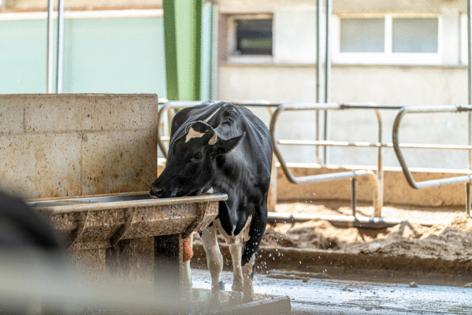Bird flu has spread to cows in Colorado. Is avian influenza threat? We answer your questions.
Published in News & Features
DENVER — The bird flu has arrived in Colorado, and while it doesn’t represent anywhere near the threat that COVID-19 did at the beginning of the pandemic, people should take some precautions with animals that could carry it, experts say.
The Denver Post compiled the latest information on H5N1 highly pathogenic avian influenza, the bird flu virus that has jumped to cows in at least nine states — including Colorado — and has infected a small number of people.
While the virus at this point is only a threat to people who work with animals, scientists are concerned that it could mutate enough to spread between people, possibly sparking another pandemic.
If you want more in-depth information, the Colorado Department of Public Health and Environment and the Colorado Department of Agriculture will hold a virtual town hall on avian flu at 9:30 a.m. Wednesday at tiny.cc/birdfluwebinar.
How widespread is the virus in Colorado?
The U.S. Department of Agriculture confirmed H5N1 highly pathogenic avian influenza had reached a dairy cow herd in northeast Colorado as of late April. The state also is investigating a second herd, but hasn’t released any information while waiting for testing results.
Cows typically don’t get influenza A viruses, the family that includes H5N1, so it was a shock to find they were infected, said Jenna Guthmiller, an assistant professor of immunology and microbiology at the University of Colorado’s Anschutz Medical Campus
At least 36 herds across nine states have tested positive, but without routine testing, the virus could be spreading undetected in others.
Over the last two years, some Colorado poultry operations have had to cull their birds (killing and properly disposing of all members of an infected flock to avoid spreading the virus to other farms), and the state health department has found infected wild birds or mammals in more than half of Colorado’s counties. You can reasonably assume that birds in your county also are carrying the virus, even if testing hasn’t found it.
Right now, the country doesn’t have a clear picture of how widely the virus has spread, particularly among cattle and people who work with them, Guthmiller said. Cows often have mild symptoms and may be able to spread the virus even if they’re asymptomatic, she said.
...continued
©2024 MediaNews Group, Inc. Visit at denverpost.com. Distributed by Tribune Content Agency, LLC.







Comments